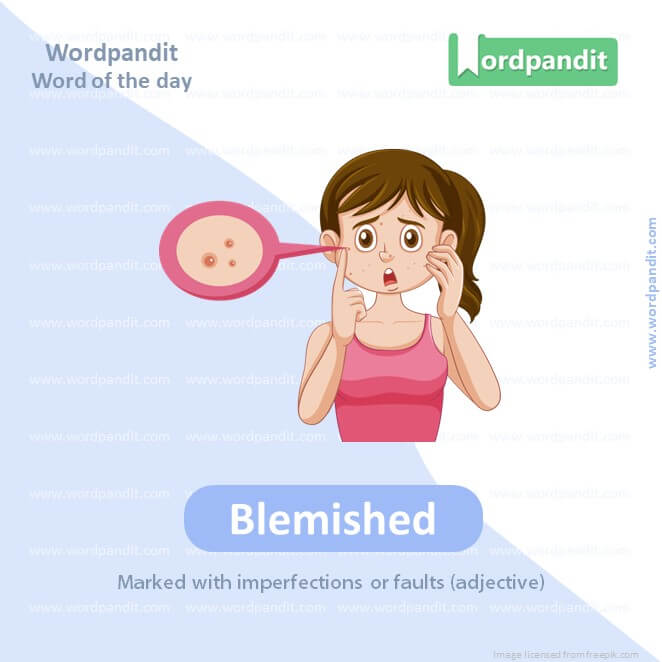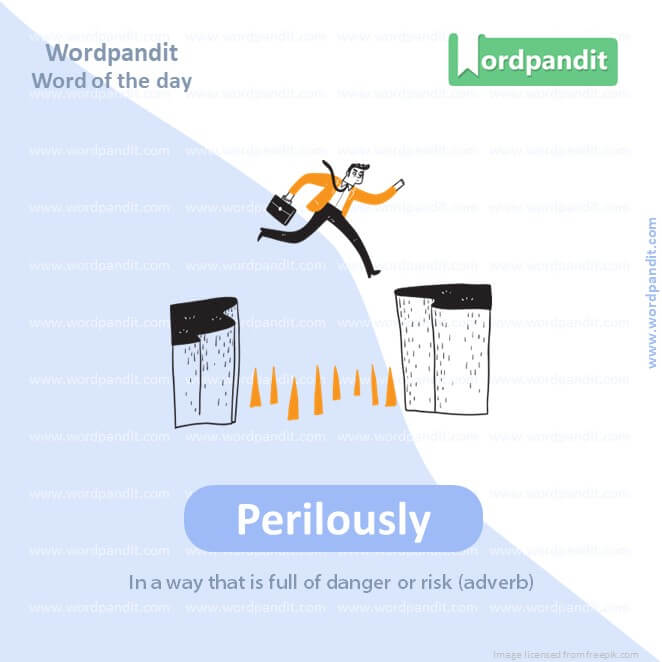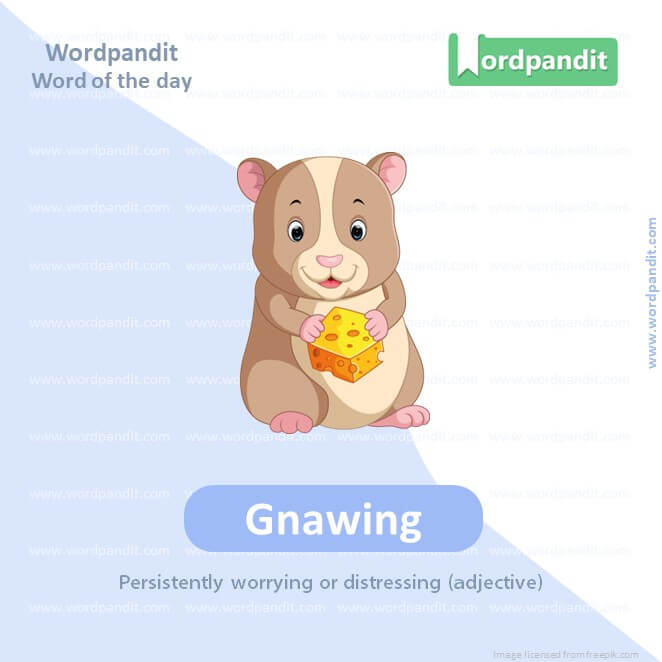Daily Vocabulary Words: Enhance Your Lexicon with Leading Newspapers & Publications
Welcome to the Daily Vocabulary section at Wordpandit!
Our mission is straightforward: to bring you essential vocabulary words featured in top newspapers and publications worldwide. By focusing on words you’ll encounter in renowned sources, we aim to help you enhance your vocabulary effectively and practically.
Our selection includes words from:
– The New York Times
– The Washington Post
– Scientific American
– BBC
– The Guardian
– Psychology Today
– Wall Street Journal
– The Economist
– The Hindu
– The Times of India
– The Economic Times
– Hindustan Times
– Live Mint
– The Indian Express
– And many more.
We are committed to your vocabulary development. Simply visit this section regularly and explore the daily posts. This is your go-to repository for commonly used words, providing significant practical benefits by familiarizing you with vocabulary from the leading publications listed above.
Make it a habit to visit our website daily and expand your lexicon with words from top newspapers and publications.
WORD-1: Equivocation
CONTEXT: The BJD’s loss of power and the rapid decline of the YSRCP and BRS offer a cautionary tale about these parties’ ploy of equivocation.
SOURCE: [Source]
EXPLANATORY PARAGRAPH: Imagine you ask your friend if they ate the last cookie, and instead of saying “yes” or “no,” they say something confusing like, “Well, I was really hungry, and cookies are good, aren’t they?” That’s called “equivocation.” It’s when someone answers a question in a way that is not clear or direct, so you’re still not sure what the real answer is.
MEANING: The use of ambiguous language to conceal the truth or to avoid committing oneself (noun).
PRONUNCIATION: eh-kwih-voh-KAY-shun
SYNONYMS: Prevarication, ambiguity, evasiveness, hedging, doublespeak
USAGE EXAMPLES:
1. During the debate, his equivocation on the important issues frustrated the audience.
2. The witness’s equivocation during the trial made it difficult to understand her testimony.
3. He used equivocation to avoid giving a direct answer about his plans.
4. Her equivocation about the incident only raised more suspicion.
WORD-2: Predilection
CONTEXT: The geopolitical curse of Punjab as a gateway of India and the many invasions it suffered has made its people martial and has left them with an inbuilt anti-Delhi Darbar disposition and a predilection to resist what they call jabar zanaha (excesses).
SOURCE: [Source]
EXPLANATORY PARAGRAPH: Imagine you have a box of many colored crayons but you always pick the red one because it’s your favorite. That’s called a “predilection.” It means liking something a lot more than other things.
MEANING: A strong preference or liking for something (noun).
PRONUNCIATION: pree-duh-LEK-shun
SYNONYMS: Preference, fondness, penchant, bias, inclination
USAGE EXAMPLES:
1. He has a predilection for chocolate ice cream over any other flavor.
2. Her predilection for classical music was evident from the collection of albums in her room.
3. The director’s predilection for dramatic lighting is apparent in all his films.
4. She showed a predilection for solving puzzles from a very young age.
WORD-3: Sporadically
CONTEXT: The ethno-national movement has petered out since, but its seeds sprout abroad sporadically, setting off alarm bells. Today, the Panthic assertion is spread internationally.
SOURCE: The Hindu
EXPLANATORY PARAGRAPH: Think about when you see fireflies blinking in your garden. They light up, but not all the time and not in a pattern—just sometimes here and sometimes there. That’s what “sporadically” means. It’s when something happens once in a while, not regularly.
MEANING: Occurring at irregular intervals, not continuously or steadily (adverb).
PRONUNCIATION: spuh-RAD-ih-klee
SYNONYMS: Occasionally, infrequently, irregularly, intermittently, randomly
USAGE EXAMPLES:
1. She visits her grandparents sporadically, maybe once or twice a year.
2. Rain fell sporadically throughout the day.
3. He only sporadically attends the gym, which isn’t enough to stay fit.
4. Her interest in the hobby waned and she only participated sporadically.
WORD-4: Unmitigated
CONTEXT: There was nothing anti-national about this and it evoked massive public support. The agitation, however, was allowed to simmer, and the failure to address the issues politically till the Rajiv-Longowal Accord in July 1985, which was also not honoured, allowed the militants to unleash unmitigated violence.
SOURCE: The Hindu
EXPLANATORY PARAGRAPH: Think about a time when you were playing and you got completely soaked in the rain from head to toe without any umbrella. “Unmitigated” is a big word that means something is total or complete, just like being totally wet.
MEANING: Absolute; complete and total (adjective).
PRONUNCIATION: un-MIT-ih-gate-ed
SYNONYMS: Absolute, complete, total, utter, sheer
USAGE EXAMPLES:
1. The party was an unmitigated disaster with everything going wrong.
2. He faced unmitigated defeat in the chess tournament.
3. Her joy was unmitigated when she found her lost puppy.
4. The project’s failure was due to unmitigated oversight in planning.

WORD-5: Blemished
CONTEXT: The poorly planned Operation Blue Star blemished the fair image of the forces. There is a caution for the Army — the strategy and tactics it adopts in aiding civil power invariably have far-reaching consequences.
SOURCE: The Hindu
EXPLANATORY PARAGRAPH: Imagine you have a big, shiny red balloon, but it has a small mark or scratch on it. That mark is called a “blemish.” When something is “blemished,” it means it has marks or little faults that stop it from being perfect.
MEANING: Marked with imperfections or faults (adjective).
PRONUNCIATION: BLEH-misht
SYNONYMS: Marred, flawed, scarred, damaged, imperfect
USAGE EXAMPLES:
1. The mirror was blemished, so it was sold at a discount.
2. He sold the blemished apples at a lower price.
3. Her reputation was slightly blemished by the mistakes of her past.
4. The blemished vase was still beautiful despite its flaws.

WORD-6: Acquisition
CONTEXT: a package of rent control for the private sector and a rapid increase of social housing, via acquisition and new building, would break the cycle of rising rents and rising benefits.
SOURCE: The Hindu
EXPLANATORY PARAGRAPH: Think about when you get a new toy. That new toy is something you’ve just got—it’s your “acquisition.” It means something you’ve gained or got for yourself.
MEANING: The act of gaining possession of something (noun).
PRONUNCIATION: ak-wuh-ZIH-shun
SYNONYMS: Purchase, gain, procurement, addition, acquisition
USAGE EXAMPLES:
1. His latest acquisition was a vintage car he found at an auction.
2. The library’s new acquisition includes books on science and technology.
3. The company’s acquisition of a smaller firm made it much larger.
4. She was proud of her acquisition of skills during the workshop.

WORD-7: Perilously
CONTEXT: Addressing the UN general assembly last year, the UN secretary-general, António Guterres, announced that the clock had moved to 90 seconds to midnight, declaring that humanity was perilously close to catastrophe.
SOURCE: Guardian
EXPLANATORY PARAGRAPH: Imagine you’re walking on a very narrow bridge over a big river; it might feel a bit scary because you could fall. When something is “perilously,” it means it’s very dangerous or risky, just like walking on that narrow bridge.
MEANING: In a way that is full of danger or risk (adverb).
PRONUNCIATION: PAIR-ih-lus-lee
SYNONYMS: Dangerously, hazardously, riskily, precariously, unsafely
USAGE EXAMPLES:
1. He perilously climbed the steep mountain without proper gear.
2. The car was parked perilously close to the edge of the cliff.
3. She leaned perilously over the balcony to get a better view.
4. The economy is perilously close to falling into recession.
WORD-8: Chastening
CONTEXT: Most exit polls had predicted a massive victory for the BJP – and now the results, with that party having won only 240 seats, suggest that the electorate has sent a chastening message to the ruling party and trimmed its hubris.
SOURCE: Guardian
EXPLANATORY PARAGRAPH: Imagine you’re playing too rough and your mom tells you to play nicely and think about what you did. That talk is to teach you a lesson. When someone gets a “chastening” experience, it means they learn something important from a mistake or a tough situation.
MEANING: Having a restraining or moderating effect on someone (adjective).
PRONUNCIATION: CHAY-suh-ning
SYNONYMS: Humbling, corrective, disciplining, sobering, penalizing
USAGE EXAMPLES:
1. The chastening effect of the mistake made him more cautious.
2. It was a chastening loss for the team, but they learned from it.
3. The harsh criticism had a chastening impact on her confidence.
4. His chastening experience at the job taught him valuable life lessons.

WORD-9: Resurrected
CONTEXT: The Indian electorate has resurrected a viable opposition in the parliament – a possibility that had seemed remote when the television channels were forecasting an inevitable and overwhelming BJP triumph.
SOURCE: Times of India
EXPLANATORY PARAGRAPH: Think about when you fix a broken toy, and it’s like the toy has come back to life. “Resurrected” is a word that means something was brought back or made to start again, like making something old new and usable once more.
MEANING: Brought back to life or use (adjective).
PRONUNCIATION: reh-SUHR-ek-tid
SYNONYMS: Revived, renewed, restored, reinvigorated, rejuvenated
USAGE EXAMPLES:
1. The old tradition was resurrected by the community leaders.
2. He resurrected the ancient recipe for the festival.
3. The band was resurrected with new members.
4. The project was resurrected after being on hold for several years.

WORD-10: Gnawing
CONTEXT: It raised no cheers in the Labour camp, where there is gnawing fear that complacency will stop too many people from bothering to vote, or will give potential Labour voters licence to vote Green.
SOURCE: Times of India
EXPLANATORY PARAGRAPH: Imagine you have a little dog that keeps biting gently on a toy or a bone. When something keeps bothering you a little bit at a time, it’s like that gentle biting or “gnawing.” It’s a feeling or problem that doesn’t go away and keeps making you feel a bit uneasy or worried.
MEANING: Persistently worrying or distressing (adjective).
PRONUNCIATION: NAW-ing
SYNONYMS: Eating away, eroding, troubling, nagging, tormenting
USAGE EXAMPLES:
1. She felt a gnawing guilt about not visiting her family.
2. There was a gnawing pain in his stomach that wouldn’t go away.
3. His gnawing suspicion turned out to be true.
4. The gnawing doubt about the success of the plan troubled him.
Vocabulary Pronunciation
The dance of language learning comprises two inseparable partners: vocabulary and pronunciation. The rhythm of this dance is best enjoyed when both partners are in sync. Essentially, mastering ‘vocabulary pronunciation’ is key to expressing and understanding a language effectively. However, what is the ideal approach to learn ‘vocabulary pronunciation’?
Firstly, the process of learning ‘vocabulary pronunciation’ isn’t a sprint. Rather, it’s a marathon where consistency is vital. A gradual and steady pace of learning new words and their pronunciation offers enough time to effectively practice and commit them to memory.
Secondly, to master ‘vocabulary pronunciation’, go beyond written text. Dwell in the world of audible language, such as documentaries, podcasts, music, or language-learning apps that provide pronunciation guides. These memorable auditory experiences aid in refining your ‘vocabulary pronunciation’ and offer a glimpse into the authentic sounds of the language.
Another beneficial strategy for learning ‘vocabulary pronunciation’ involves the use of phonetic transcriptions. They offer systematic approaches to understanding the sound system of a language, thereby improving pronunciation.
Most importantly, do not shy away from practicing your ‘vocabulary pronunciation’. Be it in a language exchange meeting, a conversation with a native speaker, or even a self-recording session, active verbalization massively boosts your pronunciation prowess.
Lastly, always remember to train your ears as much as you train your tongue. Listening carefully to native speakers helps you capture the subtleties of ‘vocabulary pronunciation’, contributing to better delivery when you speak.
In conclusion, mastering ‘vocabulary pronunciation’ is not an overnight journey. It’s a process of intentional practice, sustained listening, conscientious reflection and active usage. As you chart this course with diligence and patience, you will witness your ‘vocabulary pronunciation’ skills blossom, leading you to communicate with greater fluency and confidence.







